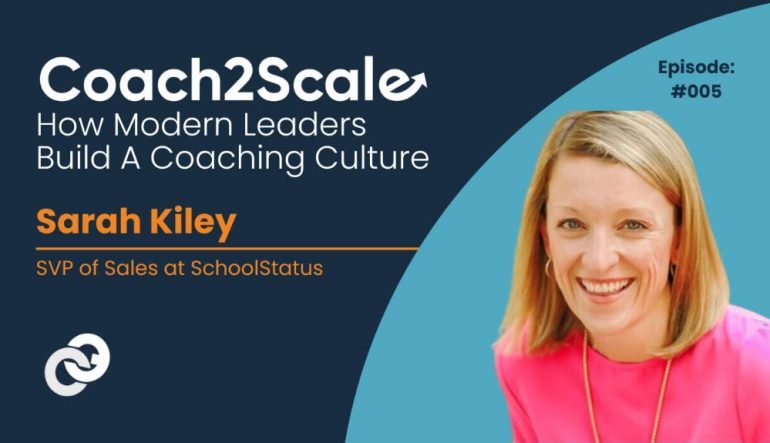In this special episode of Coach to Scale, host Matt Benelli takes on a bold challenge: a live cold-call role play with Hyperbound’s AI-powered prospecting bot one of the “rudest bots on the planet.” Joined by Hyperbound co-founder and CEO Sriharsha Guduguntla, Matt puts his skills to the test, showcasing how sales reps can practice real-world scenarios, handle objections, and refine their pitch with real-time coaching. The result? A raw, unfiltered look at what happens when the pressure is on and every word counts.
Listeners will walk away with insights into effective prospecting, the power of permission-based openers, handling resistance with confidence, and how instant AI feedback can accelerate coaching and skill development. Whether you’re a sales leader, manager, or rep looking to sharpen your edge, this episode delivers a front-row seat to practical techniques, lessons learned, and a clear takeaway: you don’t have to love cold calling you just need to practice, improve, and get better every time.
If you’ve ever carried a quota, you know the nerves that come with picking up the phone to make a cold call. Now imagine doing it live, unfiltered, against one of the “rudest bots on the planet.” That’s exactly what I did on a recent episode of Coach to Scale, when I role-played a prospecting call with Hyperbound’s AI-powered bot. And let me tell you it was every bit as tough, raw, and real as calling into a busy executive’s day.
I was joined by Sriharsha Guduguntla, Hyperbound’s co-founder and CEO, who reminded me (and all of us) why practicing prospecting calls isn’t just for new SDRs. It’s a discipline that CROs and sales leaders should be instilling in their organizations every day. The lessons from that call are directly relevant to how we coach, scale, and build the kind of sales cultures that win.
Takeaway 1: Practice Under Pressure Builds Muscle
The truth is, most reps don’t love cold calling. And many avoid it entirely. Sai broke it down into three buckets: a tiny group of “savages” who actually enjoy it, a much larger group that says they prospect but don’t, and managers who love it only because they’re no longer on the front lines. For CROs, this means one thing, if you want consistent pipeline, you can’t leave prospecting to chance. You need to create safe spaces where your team can practice under pressure, role-play, and sharpen their skills without risking live deals.
Takeaway 2: Instant Feedback Accelerates Growth
What struck me about Hyperbound’s platform is the real-time coaching. The bot doesn’t just play the role of a tough prospect it scores the call against key criteria like permission-based openers, social proof, and objection handling. For sales leaders, this is a game-changer. Reps don’t need to wait until their next one-on-one to hear what they could have done better. They get actionable insights right after the role play, and that speed of feedback makes improvement continuous instead of episodic.
Takeaway 3: Consistency Beats Comfort
Sai reminded us of a powerful truth: you don’t have to love prospecting, you just need to do it. The more you practice, the better you get, and the more confidence you build. For CROs, this means coaching should focus less on “rah-rah motivation” and more on building habits and systems that make prospecting non-negotiable. Practice turns discomfort into competence, and competence fuels results.
Takeaway 4: Objection Handling Is a Teachable Skill
On the call, I hit resistance right away. The “prospect” told me they already used ZoomInfo and weren’t interested. Sound familiar? Instead of backing down, I leaned on customer proof points and reframed the ask to a simple 20-minute conversation. It worked. The bigger lesson for leaders: objections aren’t deal-killers, they’re opportunities to test whether your reps know how to pivot. With structured coaching, handling objections becomes less about personality and more about process.
Takeaway 5: AI Scales Coaching Without Replacing Managers
This is the part that excites me most. Hyperbound’s technology doesn’t replace frontline managers, it amplifies them. By automating role plays and feedback, managers don’t have to spend hours running mock calls. Instead, they can focus on strategy, pipeline reviews, and higher-value coaching conversations. As a CRO, that means your managers get more leverage, and your reps still get the repetitions and feedback they need to improve. Everyone wins.
The CRO’s Challenge
If there’s one challenge I’d issue to CROs after this episode, it’s this: stop relying on live prospecting as the only practice your team gets. Just like athletes, your reps need structured reps off the field before game time. AI role plays and instant feedback create the conditions for growth at scale, without burning through lists or risking brand equity.
So ask yourself: how often are your reps practicing before the big calls? How quickly are they getting feedback? And most importantly, how are you building a coaching culture that makes practice just as important as performance?
Listen to the full episode, “Practicing the Perfect Prospecting Call: A Live Hyperbound AI Role Play Demo with Matt Benelli,” to hear the call, the coaching, and the lessons in real time.






